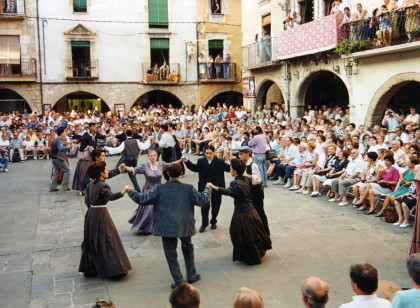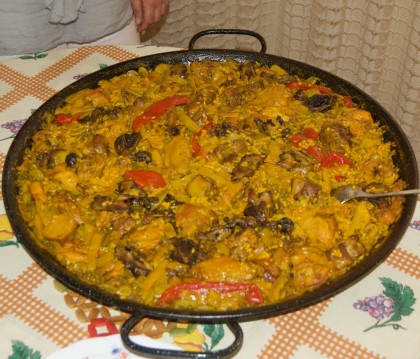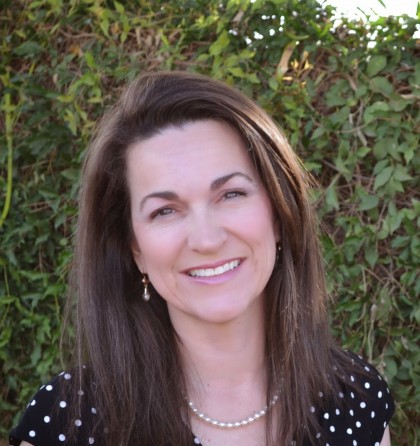Living on Borrowed Social Capital
Devra Torres | Jun 30, 2015 | 3 cmts
I was puzzled when we moved to Spain. It was supposed to be a country where old traditions of family togetherness still prevailed. It wasn’t like Sweden, or England, or North America. It valued family and traditional ways.

That was what I'd been expecting—and what I found, too, in many respects.
It was true that people tended to settle just a few blocks from their parents, if not in the selfsame apartment building. It was true that even the most punked-out-looking teenagers would appear faithfully at their grandparents’ doorstep every Sunday with the rest of the clan for dinner. Every business seemed to be a family business, and almost all of them would close from Saturday evening to Monday morning. The divorce rate stood at about 12%
But it was also true that the vast majority of women worked full time or more than full time outside the home—even mothers of exceedingly small children. State-financed daycares and nursery schools were not just the norm but almost completely universal.* If I walked down the street with my two-year-old between 9 and 5, everybody would do a double-take and ask her immediately, “¿No vas al cole?" (Don’t you go to school?)
It was also true that Spain had one of the lowest birth rates in all of Western Europe, and that Catalonia, where we lived, had the lowest one in Spain.

I got the sense that people hadn’t evolved naturally away from more traditional models of marriage and family, but were looking to prove that they were unlike the old-fashioned, traditional, faith-imbued society people had them pegged as—that they could be just as modern, just as egalitarian, just as irreligious, as the next culture.
But the whole thing was misleading: it seemed as if they were seamlessly combining the old tradition of rock-solid, warmhearted family life with all these New-Europe elements. But it wasn't that they were sifting through all this novelty for grains of truth about the dignity of women and the genuine insights of modernity. They weren't inquiring which elements were compatible with the things they already held dear. They were just jettisoning the old and embracing the new, wholesale. Things were pretty stable, but that was because they were living on borrowed social capital.
What do I mean by that?
For one thing, mothers could work at all hours with minimal damage to their children because their mothers were generally the old-fashioned, grandmotherly kind of grandmothers who would more than pick up the slack, reveling in the role of full-time child-pamperer. The children had the stability of Grandma and Grandpa to offset whatever pressures and tensions their frenetic lives entailed.

They didn't have a lot of sisters and brothers, but they had oodles of uncles, aunts, and other older relatives. They came from long, long lines of intact families.
So I worried: what would things look like even one generation from now? Were the women who were so anxious to be anything but SAHM’s in their youth going to suddenly switch gears and embrace the unglamorous domesticity of grandchild-rearing? Were the children of tiny little second-generation two-career families even going to have the luxury of nearby grandparents, where they could sink their roots into a stable identity? Would the enviably low divorce rate be able to stay that way with families being pulled in so many different directions with so little support?
As I saw the good families I knew embracing new ways so indiscriminately, it was like watching a slow-motion fallacy unfold—the fallacy of assuming all the foundations of goodness and generosity that you take for granted will remain unchanged as you tweak or jettison the customs that rest on them. I had a different vantage point: since America had already made the same kinds of decisions, I didn't have to guess where they would lead. By the time we'd been in Spain ten years, more stores were open on Sunday, and more people seemed to be going to grimy little fast-food joints for Sunday dinner instead of to Abuelita's house. The divorce rate was rising, too (now it stands at over 60%, higher even than America's).Three years after we left, gay "marriage" became the law of the land.
Of course it’s not that simple. The American character has always been independent and mobile, inventive and adventurous and reckless, in a way other countries aren’t known for. We never had the kind of reverence for tradition or authority that Spanish people had. (This is both good and bad in ways I won’t attempt to elaborate here.)
We in America are also living on borrowed social capital. When we blithely embrace gay “marriage”—or stand by uneasily while a few powerful people do—we might imagine that our foundations will stay put, that we’re just building new kinds of things on them now. We imagine we’re adding more options, rather than snatching away the support we ourselves, and all the generations to come, were standing on.
Don't get me wrong. God and His people have been in tighter spots than this--we Americans are inclined to short-sightedness, historically speaking!--and lived to tell. Leila Miller (right) of Little Catholic Bubble has an excellent piece called, "Rejoice! The Church's beacon just got brighter."
And here's something I wrote right after Obama's re-election, about the odd sort of gratitude I felt then for being woken up and inspired to do well whatever was still in my hands to do. Oh, and here's a great piece by blogger Jen Fitz (below) of Sticking the Corners called 10 Things Christian Kids Need to Prepare for an Uncertain Future. Common-sense, non-alarmist wisdom of the kind we could all use right now.

But it's good to check every once in a while to make sure you're not putting your trust in princes (or judges, or other politicians). It's good not to be lulled into the false security of thinking your social capital is going to last forever.
__________________________________
*I want to be careful here: all-but-universal daycare in Spain isn't inspired by a motherhood-is-slavery mindset so much as by an extremely communal kind of culture. Children are raised in groups not out of hostility to at-home mothers but because of the conviction that constant communal-ness is beneficial for children.



Comments (3)
Nanda
Jul 19, 2015 8:19pm
Wonderful, Devra! Thank you...Challenging and heartening, all at once.
Devra Torres
Jul 19, 2015 9:22pm
Thank you--I hope it's heartening!
Nanda
Jul 19, 2015 9:32pm
Even if we're living on borrowed social capital, if we internalize it, we perpetuate it, don't we? Let's hope the kid with the purple Mohawk wakes up to the *reason* for dinner at abuela's/nonna's someday!